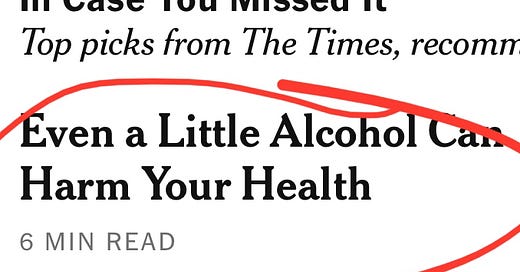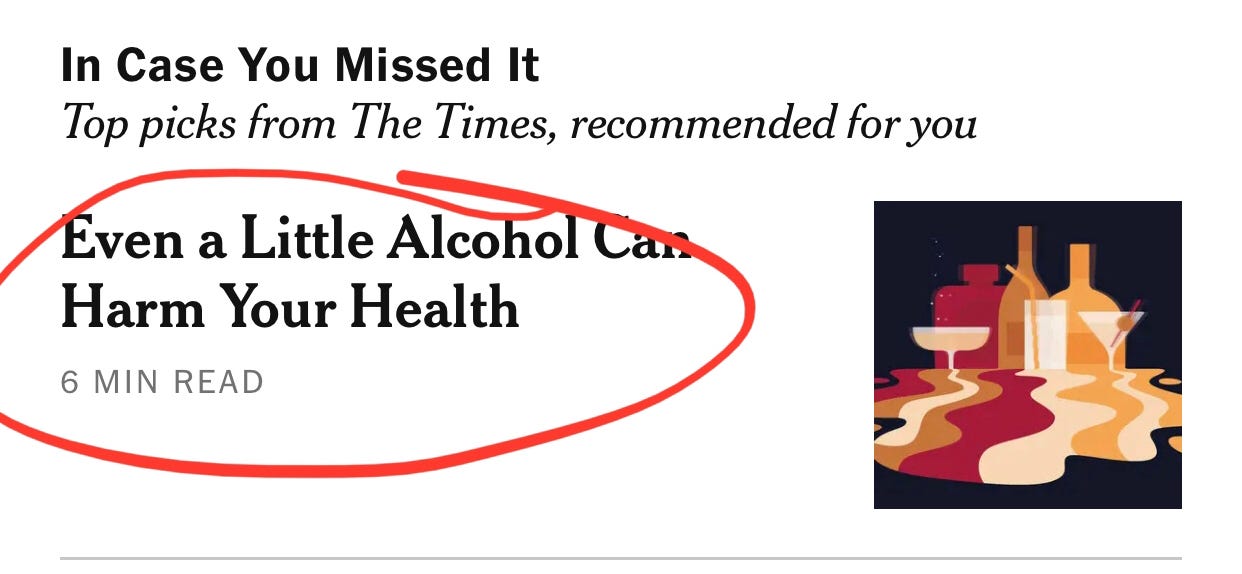Alcohol, Guilt and The Patriarchy
Some anti-alcohol messaging is aimed specifically at women — and not rooted in science.
A couple of weeks ago, I sent this screenshot to my two best friends in WhatsApp with the note, “Is The New York Times trolling me?”
I was on vacation at the time, likely mid-piña colada, so the personal recommendation (“for you!”) felt especially obnoxious.
That headline continued to haunt me. I kept thinking about it. I kept worrying about it. I don’t drink during the week, but I often have a couple of drinks on weekend nights (and on vacation). I found myself lying awake at night wondering whether my penchant for chardonnay was going to give me breast cancer, and whether my selfish choices made me a bad mom.
Then I stumbled upon writer Jessica Grose’s excellent column in The New York Times on Wednesday in which she admitted how much the headline had irked her, too. “The ultimate takeaway was: ‘Drink less, live longer,’” she wrote. “This comes on the heels of learning that my gas stove may be killing me, I’m eating the wrong carbs and processed meat shouldn’t be ‘a regular habit.’”
I’ve talked in past newsletters about the unfair pressure on moms to conform to ridiculous standards and make the right choices. Our children’s behavior and appearance reflect on us (more than on dads). The cleanliness of our homes reflects on us (more than on dads). The quality of the lunch we pack reflects on us (more than on dads). All of this pressure constrains moms, ensuring we remain tightly tethered to our domestic lives.
But what I didn’t know until recently is that anti-alcohol messaging is also, to some extent, rooted in misogyny. Alcohol has long been considered a “man’s vice,” and over the years, society has found many ways to warn women that drinking is unacceptable in order to keep them in their place.





